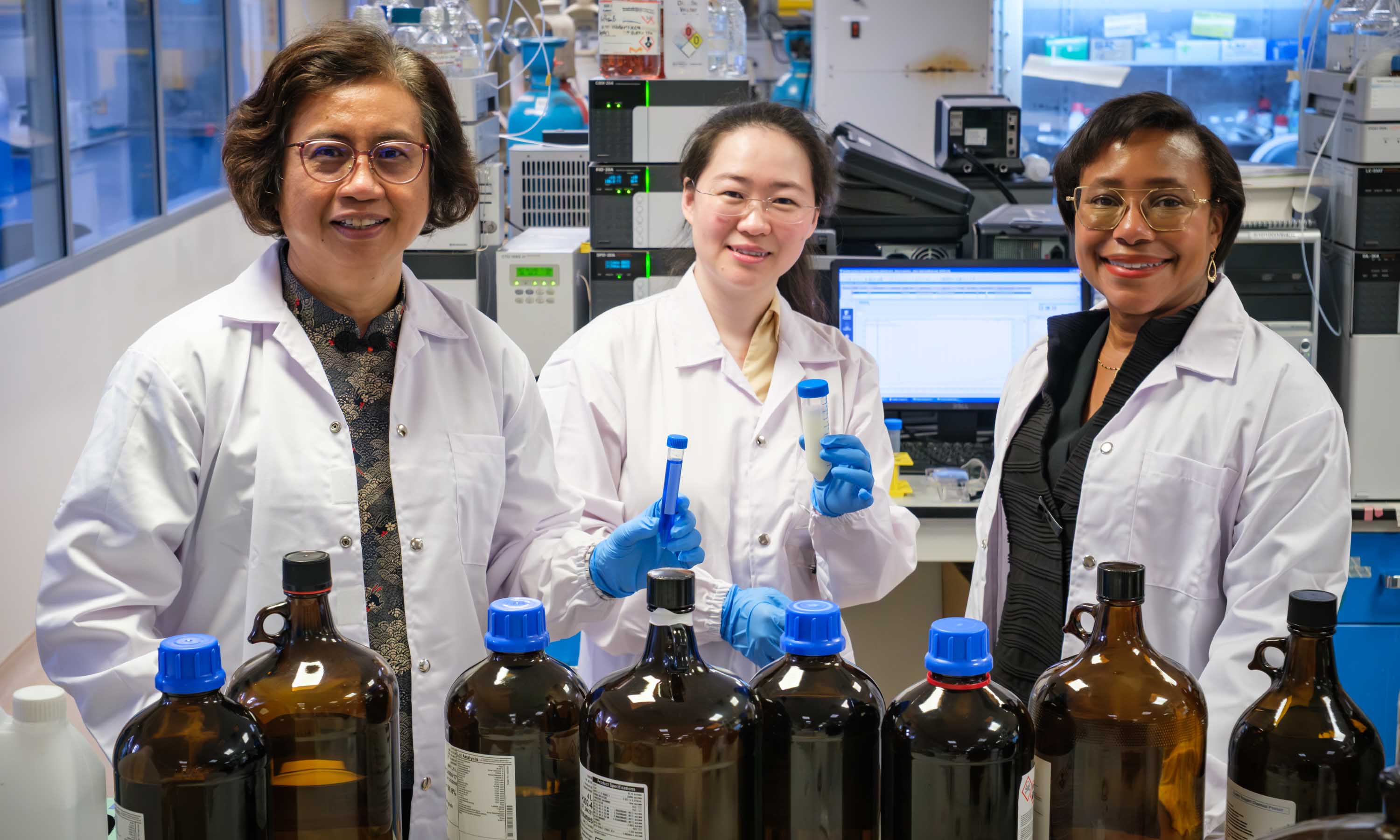
Image: (From left) Prof Mary Chan from Nanyang Technological University, Singapore, Dr Kaixi Zhang from the Singapore-MIT Alliance for Research and Technology, and Prof Paula Hammond from the Massachusetts Institute of Technology were involved in developing a safer and more sustainable antimicrobial compound (blue-dyed liquid in tube) to prevent infection in cow udders. The compound, which was applied to cow udders, also did not affect the quality of cows' milk (white liquid in tube).
For decades, the dairy industry has been plagued by bacterial infection of cow udders that significantly reduces milk production. Antibiotics have been used to treat the infection, called bovine mastitis, but there is rising antibiotic resistance and concerns around milk contamination from antibiotic residues.
Now, an international research team has developed antibiotic alternatives, called "oligoimidazolium carbon acids", that can address these challenges to prevent infection through a newly discovered mechanism. The scientists were led by NTU Singapore, in collaboration with the Antimicrobial Resistance Interdisciplinary Research Group at the Singapore-MIT Alliance for Research and Technology (SMART), Massachusetts Institute of Technology's (MIT) research enterprise in Singapore.
These alternatives have attracted interest from several agricultural companies in Australia, Belgium, Malaysia and New Zealand seeking substitutes that are safer and more sustainable than existing compounds in preventing udder infection.
Professor Mary Chan from NTU Singapore's School of Chemistry, Chemical Engineering and Biotechnology, and Professor Kevin Pethe from NTU's Lee Kong Chian School of Medicine, co-led the research team.






